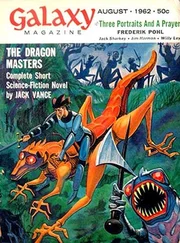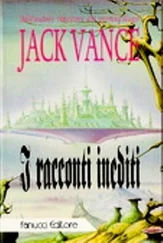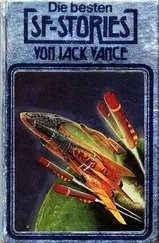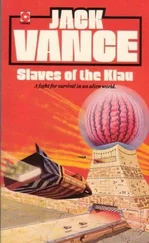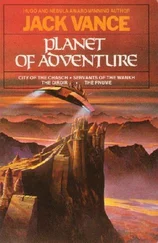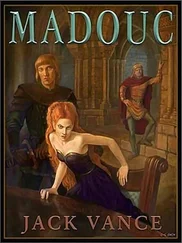“—and there build a sail-plane large enough to carry all of us. And then I remember that we can’t stay aloft indefinitely; that without proper power to keep us going we might as well stay on the ground… And then I consider fantastic notions: rockets, kites—”
She caressed his face. “You worry too much, Claude.”
“One scheme might work—a balloon. A hot-air balloon. Unfortunately the trend of the. wind is south-east, and we would very soon be blown out to sea.” He heaved a deep sigh.
Nancy pulled him to his feet. “Let’s walk up the shore, where we’re farther away from the camp”
When they returned, the traders had brought out a big green bottle of wine, and all were sitting around the fire, flushed and talkative. Glystra and Nancy each drank a small quantity, and presently the fire tumbled into coals and the night air pinched at their bones.
Sentry watches were arranged, and the party turned into their blankets. Sleep, under the great trees by Lake Pellitante…
Brilliant sunlight flooded the camp. Glystra struggled awake. Why did his mouth taste so vilely? Why had not the last sentry aroused him?
He stared around the camp.
The traders were gone!
Glystra jumped to his feet. Under the monoline lay Pianza, face down—and his neck was ghastly with blood.
The trolleys were gone. Four trolleys, a hundred pounds of metal, clothes, tools…
And Pianza dead…
They buried him in a shallow grave in utter silence. Glystra looked up and down the monoline, turned back to his company.
“There’s no use fooling ourselves. This is a real blow.”
Clodleberg said sheepishly, “The wine—we should never have drunk the wine. They rubbed the inside of our glasses with sleep oil. One should never trust traders.”
Glystra shook his head glumly, looked toward Pianza’s grave. No more Pianza. It was a real loss. A fine fellow, kind, unassuming, cooperative. A wife and three children awaited his return to Earth, but now they would never see him again. The Earth calcium of his bones would settle into the Big Planet soil… He returned back to the silent group.
“Clodleberg, there’s no reason for you to come any further. The trolleys are gone, our metal is gone. There’s nothing for you ahead. You’d best get back to Kirstendale and pick up Cloyville’s trolley, and that should get you back to Swamp City.”
There would be Corbus, Bishop, Nancy and himself left in the party. “Any of you others can do likewise. There’s hardship and death ahead of us. Anyone who wants to return to Kirstendale—my good wishes go with him.”
Nancy said, “Why won’t you turn back, Claude? There’ll be all our life ahead of us—sooner or later we can get a message to the Enclave.”
“No. I’m going on.”
“I’ll stick,” said Bishop.
“I don’t like Kirstendale,” said Corbus. “They work too hard.”
Nancy’s shoulders drooped.
“You can go back with Clodleberg,” suggested Glystra.
She looked up at him sorrowfully. “Do you want me to?”
“I never wanted you to come in the first place.”
She tossed her head. “I’m not going back now.”
Clodleberg rose to his feet, twisted his blond mustache. He bowed politely. “I wish you all the best of luck. You’d be wiser to return to Swamp City with me. Wittelhatch is not the worst master in the world.” He looked from face to face. “No?”
“No.”
“May you reach your destination.”
Glystra watched him as he walked through the trees. His arms swung free. He had left his cross-bow on the trolley; the trolley was gone.
“Just a minute,” called Glystra.
Clodleberg turned inquiringly. Glystra gave him the heat-gun. “This should see you past the Stanezi. Throw off the safety here, press this button. There’s very little power left in the bank, don’t fire it unless it’s absolutely necessary.”
“Thank you,” said Clodleberg. “Thank you very much.”
“Goodbye.”
They watched him disappear through the trees.
Glystra sighed. “The two or three charges in that gun might have taken us a few extra miles, or killed a few more Rebbirs. It’ll save his life… Well, let’s take an inventory. What’s left to us?”
“The commissary packs, with the concentrated foods, my vitamins, our blankets, the water-maker and four ion-shines,” said Bishop. “Not very much.”
“Makes for easier walking,” said Corbus. “Let’s get moving. We’ll go crazy standing around here moping.”
“Good enough,” said Glystra. “Let’s start.”
The lake was forty miles wide—two days march under the quiet trees. On the evening of the second day a river out-flowing from the lake behind the south barred the way, and camp was made on the shore.
Next morning a raft was contrived by cross-piling dead branches. By dint of furious poling and paddling the clumsy construction was forced to the opposite bank, three miles downstream from the monoline.
Climbing up on the bank they looked across the landscape. Looming in the north-east were the crags of the Eyrie, guarded by a wall of great cliffs running north to south.
“Looks like about another three days to the cliffs,” said Bishop, “and no perceptible gap for the monoline.”
“Perhaps it’s just as well we’re on foot,” said Corbus. “Imagine the portage to the top of the cliff!”
Glystra turned his head, looked along the river bank toward the lake, looked again, squinted. He pointed. “What do you see up there?”
“About a dozen men on zipangotes,” said Corbus.
“The traders spoke of a party of Rebbirs… Conceivably—” he nodded.
Nancy sighed. “How nice to ride on one of those beasts instead of walking!”
“The same thought had occurred to me,” said Glystra.
Bishop said dolefully, “Three months ago I was a civilized human being, never thought I’d turn out a horse-thief.”
Glystra grinned. “Makes it less astonishing when you remember that five or six hundred years ago the Rebbirs were civilized Earthmen.”
“Well,” said Corbus, “what do we do? Walk down and murder them?”
“If they’ll wait for us,” said Glystra. “I hope we can do it on less than a macro-watt, because—” he scrutinized the indicator of the ion-shine he had claimed from Pianza’s body “—there’s only two macro-watts left in the bank.”
“About the same here,” said Bishop.
“I’ve got about two good kicks in mine,” said Corbus.
“If they ride off peaceably,” said Glystra, “we’ll know they’re good citizens and their lives won’t be on our consciences. But if—”
“They’ve seen us!” cried Nancy. “They’re coming!”
It was a race across the stretch of gray plain—men in flapping black cloaks crouched on the thundering zipan-gotes. These were a species different from the string of beasts they had sold to Wittelhatch; they were larger, heavier, and their heads were bony and white, like skulls.
“Demons!” muttered Nancy under her breath.
The men wore tight helmets of a white shiny substance, ridged over the tip and trailing scarlet plumes behind. Crouched low, knees clamped into the horny black sides of their skull-headed chargers, the foremost flourished swords of gleaming metal.
“Up here, up on the bank,” said Glystra. “We want to delay the front ones till they’re all within range…”
The horny feet thudded furiously across the plain, the Rebbirs sang out calls of the wildest exultation. The faces of the foremost were clear: bony aquiline visages, jut-nosed, the lips drawn back in strain.
“I count thirteen,” said Glystra. “Bishop take four on the left; Corbus four on the right; I’ll get five from the middle.”
Читать дальше



